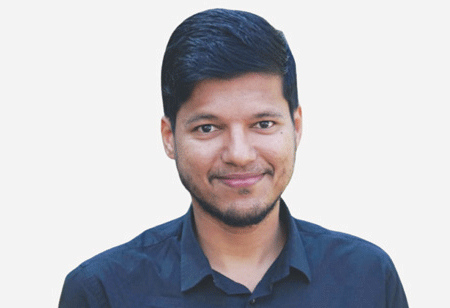Artificial Intelligence (AI) is a machine's ability to perform cognitive human tasks such as thinking, learning, problem solving and decision making. Most AI systems rely on historic data sets to predict future outcomes faster than a human can do.
In India, we live in one of the most overburdened healthcare systems in the world, it is highly unorganised. Quality and affordability are the two big challenges in India and AI innovations are becoming an essential part of the Indian healthcare department.
Over the past few years, many startups have emerged aiming to solve these challenges. Technology is playing a huge role almost everywhere, whether it is prevention, diagnosis, treatment, recovery or cure of any physical or mental impairments in people. The Indian health ministry is taking significant steps in this direction.
The pandemic and the lockdown that followed, accelerated the digitization journey of healthcare in India. For example, the government tweaked the rules of teleconsultation and enabled certified medical professionals to serve their patients anytime, anywhere.
Disruptive technologies like AI are going to further strengthen the existing capabilities, increase operational efficiencies and improve user experience after covid-19.
AI Innovations Revolutionizing Healthcare
AI in healthcare could help in forecasting health events, creating treatment plans, online consultations, clinical decision making, making healthier choices, and solving public health problems.
Healthcare companies, old and new, have already started adopting and developing AI. Here are 4 areas in which AI innovations are revolutionizing healthcare in India.
1. Detection & Diagnosis
AI algorithms are being trained to read X-rays, CT scans & Ultrasound scans. This not only helps doctors with better diagnostics but also provides a tool to combat the shortage of radiologists in hospitals. Startups are using AI based solutions that interpret radiology scans in second reducing time of treatment.
AI based systems are being used for automated analysis of blood smears and also for early detection of tumors- they can detect diabetic retinopathy (DR) with high accuracy in under three minutes, Tuberculosis, breast and lung cancer. AI systems are being developed to provide virtual assistance and diagnosis remotely.
2. Optimization
AI systems are being developed for hospital
management that include bed management and insurance claims. These systems would be able to predict demand and supply of hospital beds, automate the first level of screening, find suitable doctors based on their availability and check the hospital inventory against prescriptions. This would mean reduced dependency on paper, improved efficiency and comprehensiveness and less chances of human errors.
AI systems and robots have been built to collect data from surgeries real time which then help to improve these processes.
3. Experience
Multiple chatbots have already been developed to handle patient interactions. Large hospitals are already moving to these chatbots to schedule appointments, collect patient details and symptoms and in some cases provide basic solutions as well. This also results in less patient visits for the overburdened hospitals.
Systems are being developed to read data (pulse, body temperature and other activities) from the wearable sensors and provide doctors with insights. These systems can alert the medical staff in case required.
4. Personalization
A few startups have begun to provide highly personalized solutions. Some Apps are using analytics and AI to provide personalized health suggestions like diet plans to its clients based on past data and lifestyle parameters. Others are helping doctors discover personalized cancer care options for their patients or have a smart matching algorithm to connect doctors and patients based on the Doctor’s experience and patients conditions.
AI solutions are also being used to help the customer’s journey by suggesting personalized product recommendations to users.
-
AI based systems are being used for automated analysis of blood smears and also for early detection of tumors- they can detect diabetic retinopathy (DR) with high accuracy in under three minutes, Tuberculosis, breast and lung cancer
Sahil Bansal, Co-founder and CEO, Fitelo
AI Evolution And Challenges
How AI evolves in the healthcare sector in India depends on two factors.
Historical data is the main source of development of these systems. As the data collection increases, the systems would be able to perform better. Currently, the data sets available are fragmented and incomplete. Data collected by current healthcare practitioners is non standardized, inaccurate and often incomplete. Digitization practises are still poor even at the most renowned institutions.
Second, with multiple stakeholders in a highly unorganized sector, a significant human, financial and infrastructural investment is going to be needed to build these solutions. AI systems are expensive to build, train, test and deploy. Companies like Microsoft and Google are helping by providing the computing power and in some cases the technical expertise needed to develop these systems. The Indian health ministry is taking steps when it comes to policy and regulation.
Final Thoughts
The current adoption of AI systems is limited to large private hospitals and cities. However, these systems have the capability to solve India’s healthcare problems. Significant contributions can be made by AI in healthcare in India.
Covid-19 has made healthcare a top priority for governments, businesses and investors around the globe. Efforts to apply AI in healthcare have accelerated. For example, AI models are being used to predict the third wave of Covid in many countries.
With the right support from Indian health ministry and participation from the private sector, AI systems can help reach more people, enhance the accuracy in decision making and offer more affordable healthcare in India.
